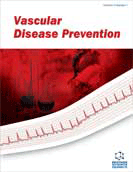Abstract
Background. Endothelial dysfunction (ED) with atherosclerosis is a recognized complication of uremic patients. The importance of inflammation in ED pathophysiology has recently been proposed. The aim of this study was to analyze the role played by inflammation on ED in peritoneal dialysis (PD) patients. Methods: During 15 months, all the patients from our PD unit were followed-up. We determined nutritional, inflammatory (C-reactive protein (CRP), TNF-α and Vascular cell adhesion molecule-1 (VCAM)) and endothelial function markers at baseline and during systemic inflammation (SI). Seventeen patients were finally included due to elevation of CRP by various etiologies (4 suffered silent infection by Helicobacter pylori, 4 upper respiratory infections and 2 intestinal bacterial over-growth). They were compared with a control group (CG) with 12 PD patients who did not suffer SI. A venous occlusion test (VOT) was performed to stimulate the endothelium. Endothelial function was assessed by measuring: endothelial fibrinolytic capacity: tissue-type plasminogen activator (t-PA) and plasminogen activator inhibitor (PAI); endothelial damage markers: von Willebrand factor (vWF), thrombomodulin (TM) and nitric oxide (NO); cardiovascular (CV) risk markers: fibrinogen, lipoprotein(a) and homocysteine (Hcy); growth factors: VCAM-1, vascular endothelial growth factor (VEGF), transforming growth factor-β (TGF-β) and platelet-derived growth factor (PDGF). After variable of follow-up time, CRP and TNF-α plasma levels increased. Results: We found a decrease in albumin, tPA ratio (post VOT/pre-VOT) and nitrate (NO3)-ratio. PAI, TM, Lp(a) and TGF-β Increase. A positive linear correlation between Hcy and PDGF was found, suggesting a pro-atherogenic environment. The CG did not show changes in the studied parameters. Conclusions: In PD patients, systemic inflammation induces endothelial dysfunction estimated by elevation of endothelial damage markers. Pro-inflammatory cytokines are associated with elevations in procoagulable and proatherosclerotic mediators in plasma.
Keywords: Systemic inflammation, endothelial dysfunction, cardiovascular risk, peritoneal dialysis, MIA syndrome


